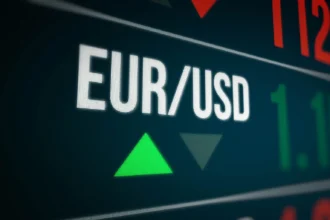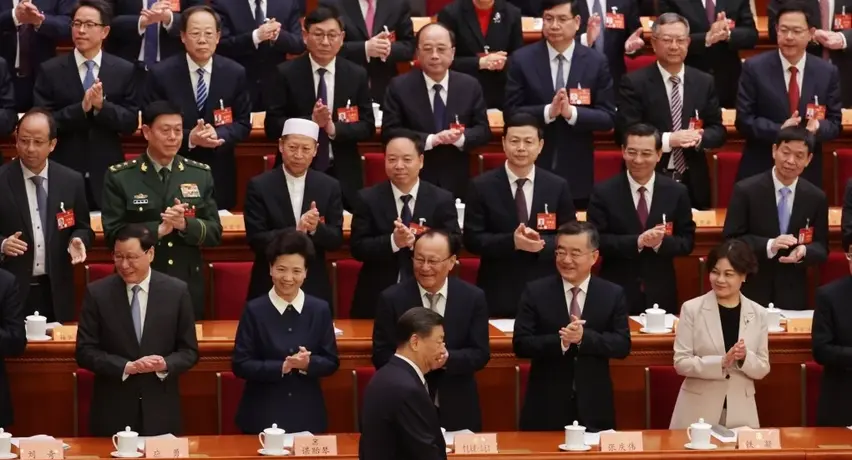China and France to Hold High-Level Dialogues in 2025: Strengthening Economic and Strategic Relations
China and France are taking significant steps to enhance their bilateral relations by conducting three high-level dialogues in 2025. These discussions will focus on strategic, economic, financial, and cultural cooperation. The announcement was made by Chinese Foreign Minister Wang Yi following a meeting with his French counterpart, Jean-Noel Barrot, in Beijing.
As global geopolitical tensions rise and trade challenges persist, this diplomatic engagement aims to foster stability, enhance economic partnerships, and promote mutual investments. Let’s delve deeper into the core aspects of these discussions and their potential implications.
Key Highlights of the High-Level Dialogues
1. Strengthening Bilateral Relations
During their meeting at Beijing’s Diaoyutai State Guesthouse, Wang Yi described the discussions as “constructive.” The primary goal of these dialogues is to reinforce cooperation between China and France while also strengthening China-EU relations. Both nations seek to maintain open communication channels through a dedicated consultation mechanism between foreign ministries.
2. Addressing Global Trade Concerns
The backdrop of this meeting includes increasing global trade tensions, notably with the U.S. imposing or threatening tariffs on trading partners such as China and the European Union. France, advocating for diplomacy over trade wars, emphasized the importance of resolving trade disputes through constructive dialogue rather than economic restrictions.
3. Focus on Economic and Financial Cooperation
Both China and France aim to deepen economic collaboration in several key industries:
- Agriculture – Strengthening agricultural trade and food security agreements.
- Nuclear Energy – Expanding partnerships in clean energy development.
- Aviation and Aerospace – Exploring joint ventures and technological advancements.
- Artificial Intelligence (AI) and Digital Economy – Innovating digital transformation strategies.
- Green Hydrogen and Biomanufacturing – Boosting investment in sustainable and renewable energy projects.
Additionally, China has committed to encouraging more capable Chinese enterprises to invest and establish businesses in France.
4. Resolving Trade Disputes
China imposed provisional tariffs of 30.6% to 39% on European brandy imports in October 2024, affecting French cognac exports. This move followed the European Union’s decision to impose tariffs on Chinese electric vehicles. France, heavily impacted by this tariff, is advocating for a quick resolution. Jean-Noel Barrot emphasized that reaching a solution would help build stronger economic partnerships and long-term investments.
5. Geopolitical and Security Interests
France urged China to play a constructive role in resolving the ongoing Russia-Ukraine conflict by persuading Russia to engage in negotiations with genuine intentions. France highlighted that a balanced approach to commercial and security interests would enhance overall diplomatic relations between the two nations.
6. Climate Cooperation and Sustainability
Both countries acknowledged the importance of addressing climate challenges. China reaffirmed its commitment to international climate governance, while France encouraged high-level participation in ocean sustainability initiatives.
Impact on China-EU Relations
These high-level dialogues will play a crucial role in shaping China-EU relations. As France holds significant influence within the EU, its diplomatic engagements with China could set a precedent for broader European cooperation with Beijing.
Key areas of impact include:
- Increased Trade Opportunities – Streamlining trade processes and reducing tariffs could boost commerce between China and the EU.
- Technological Advancements – Collaboration in AI, digital economy, and aerospace will drive innovation and economic growth.
- Sustainable Development Goals (SDGs) – Joint efforts in green hydrogen and biomanufacturing will promote cleaner energy solutions.
- Foreign Direct Investment (FDI) – Encouraging bilateral investments will strengthen long-term economic ties.
Future Prospects and Expectations
With three high-level dialogues planned for 2025, expectations are high for constructive outcomes. Both countries are likely to:
- Foster stronger diplomatic ties.
- Resolve ongoing trade disputes amicably.
- Enhance cooperation in key industries.
- Advocate for multilateralism in global trade.
The success of these discussions will not only shape China-France relations but also influence global economic and political dynamics.
Frequently Asked Questions (FAQs)
1. What are the main topics of the China-France dialogues?
The discussions will focus on strategic, economic, financial, and cultural cooperation, along with global trade, security, and climate policies.
2. How will these dialogues impact China-EU relations?
The dialogues could improve trade relations, foster technological collaborations, and encourage mutual investments between China and the EU.
3. What industries will benefit from China-France cooperation?
Key industries include agriculture, nuclear energy, aviation, AI, digital economy, green hydrogen, and biomanufacturing.
4. What is the current trade dispute between China and France?
China imposed tariffs on European brandy imports, affecting French cognac brands. France seeks to resolve this issue diplomatically.
5. How is France addressing trade concerns with China?
France advocates for dialogue over trade wars and supports ongoing discussions between EU Trade Commissioner Maros Sefcovic and Beijing.
6. What role does China play in the Ukraine conflict?
France urged China to persuade Russia to negotiate in good faith to end the ongoing conflict.
7. How will the dialogues impact global trade policies?
The meetings could lead to trade policy reforms, tariff reductions, and improved economic partnerships globally.
8. Will Chinese businesses invest more in France?
Yes, China has expressed its commitment to encouraging Chinese enterprises to invest and expand operations in France.
9. What environmental initiatives are China and France discussing?
Both countries aim to collaborate on international climate governance, ocean sustainability, and clean energy projects.
10. When will the next round of China-France dialogues take place?
Three high-level dialogues are scheduled for 2025, but exact dates are yet to be confirmed.
Disclaimer
This article is for informational purposes only and should not be considered financial or investment advice. Readers are encouraged to conduct their own research or consult with a professional before making any business or economic decisions.



